The Orb's Thomas Fehlmann: the 10 records that blew my mind
The Orb composer/producer ruminates on 10 killer influential tracks
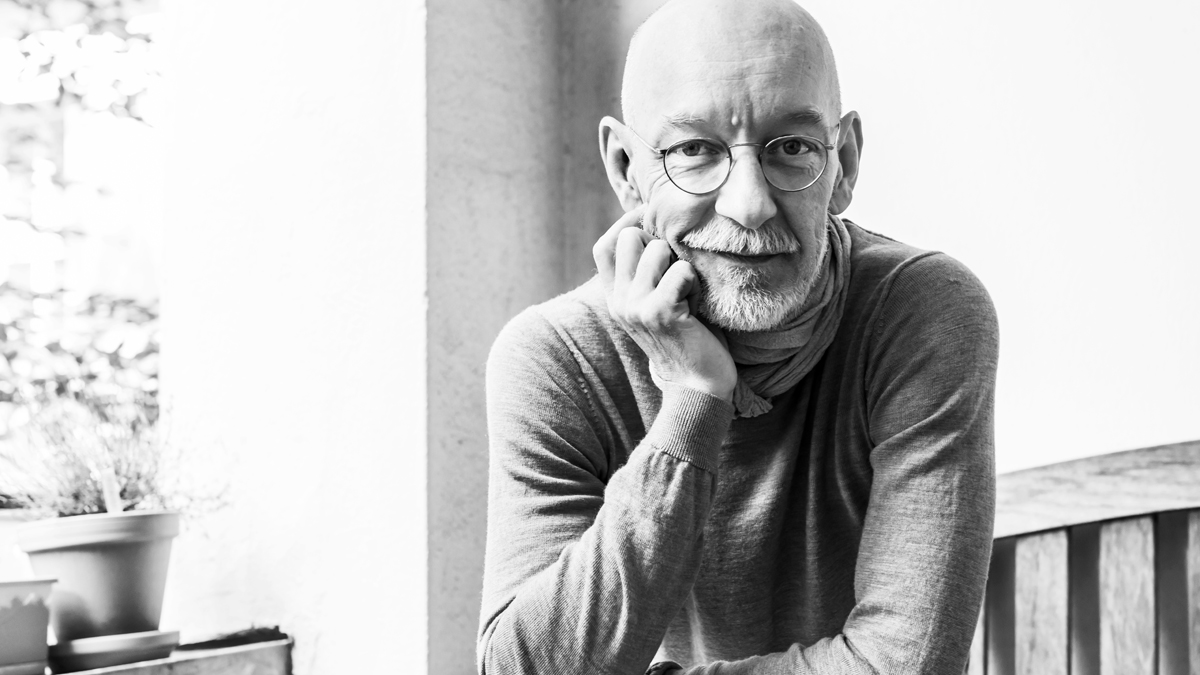
Intro
After co-founding German new wave collective Palais Schaumburg with Basic Channel creator Moritz Von Oswald in the late 70s, Thomas Felhmann released numerous ambient dub albums on Kompakt and found further inspiration with his own Teutonic Beats label.
Now sitting in the producer’s chair as one half of Alex Patterson’s The Orb, Fehlmann reflects on the 10 tracks that have influenced his approach to sound and production.
Click through the gallery to discover Thomas’s selections and find out why he chose them...
Don't miss - In pictures: The Orb's Thomas Fehlmann's Berlin studio
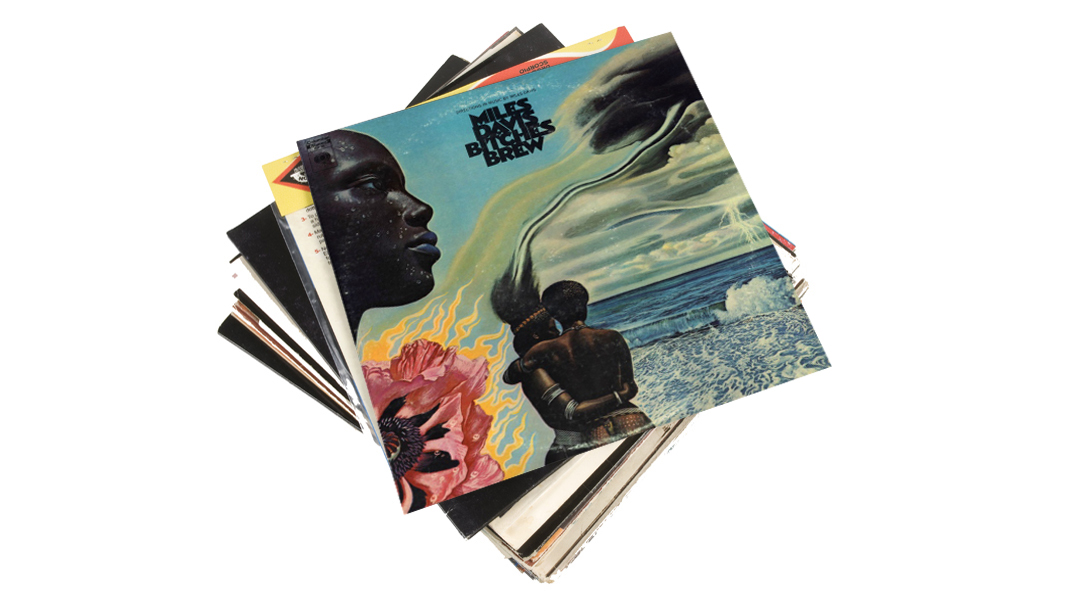
1. Miles Davis - Bitches Brew
Sometimes records stick with you against their will. For me, Miles Davis’ Bitches Brew was a real door opener towards jazz, something which has never left me since.
Even though I am not a musician in the classical sense, it was something that I felt really had an impact on me. What I found fascinating was this concept of mixing genres together. I didn't analyse it at the time, but looking back that was something that really got me moving.
Suddenly there seemed to be a freedom in taking what you like, putting it together and making your own mixture out of it. On Bitches Brew, it was the jazz aspect; mixing those repetitive grooves and melodies that felt different to all those Bebop or cool jazz-type tracks.
This is still one of my very favourite records that I regularly go back to and enjoy.
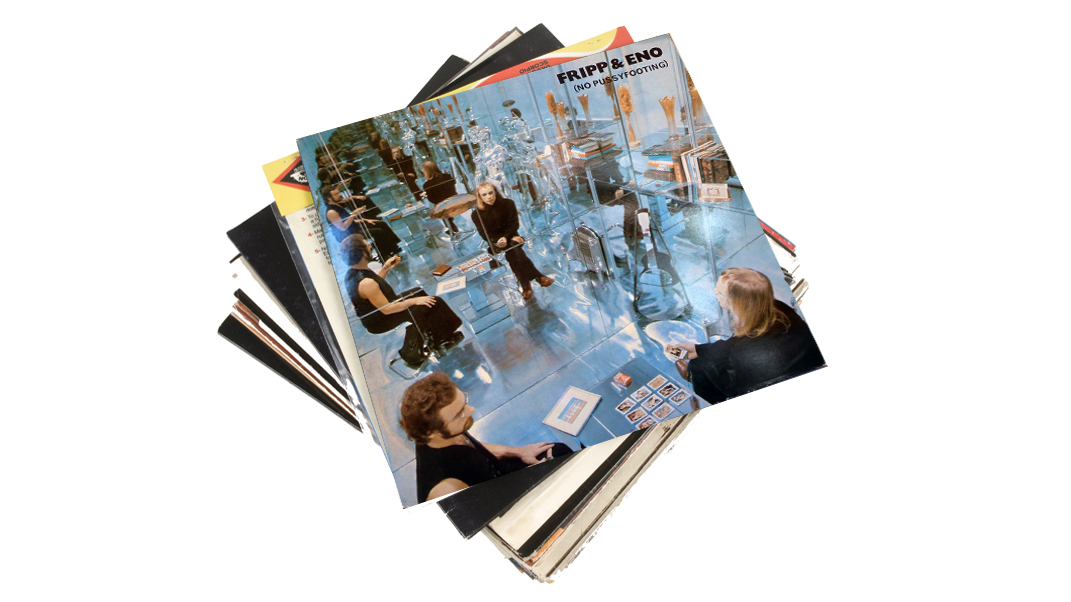
2. Robert Fripp & Brian Eno - No Pussyfooting
Both bands, Roxy Music and King Crimson, were very dear to me, so I always thought it was very attractive that these two unlikely personalities should team up and make a record together.
To me, it was a marriage of two people that didn't fit together, but I was pleased to see that fusion of building something new out of very disparate directions. This was their first collaboration, which for me is electronic music in a very pure form, without any drums or lyrics. At that point, it was very radical.
The Orb did a record with Robert in 1994 called Fast Forward, and I got to work with him. He uses the guitar in a very electronic and unconventional way, using lots of effects and decays.
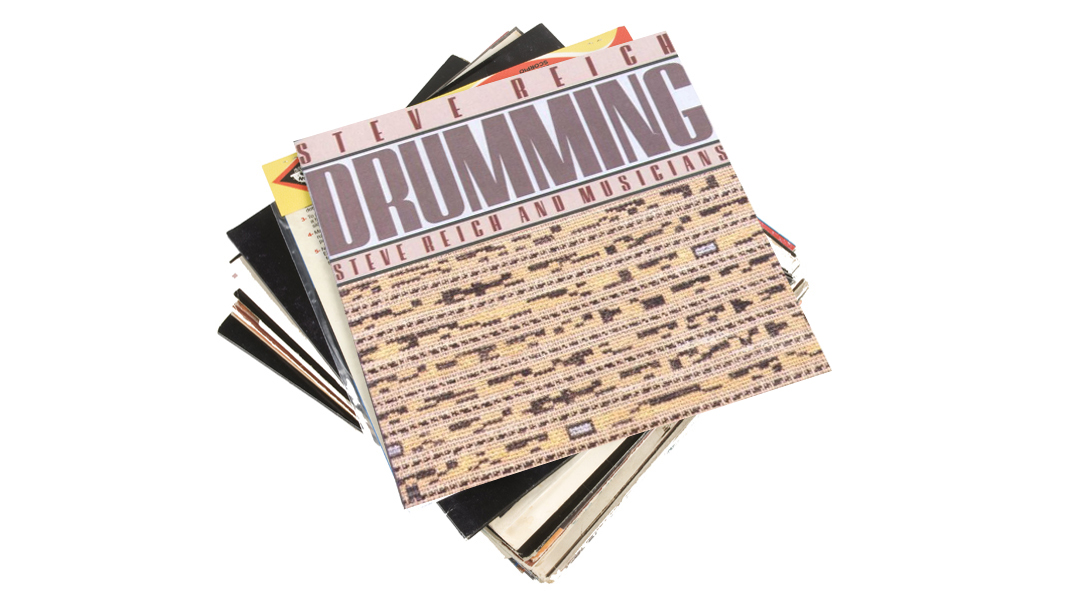
3. Steve Reich - Drumming
I liked the concept of avant-garde records a lot, and did not necessarily have to listen to them to appreciate them. But with this record, I really enjoyed Steve Reich's drumming and sitting there listening to the tune developing.
There was a certain amount of musicians in that period, like Philip Glass, La Monte Young or Terry Riley, who came up with serial music or minimal music, and minimal has stayed with me for quite a while.
For me there is a spiritual influence that you get from those records, not based on a certain sound or musical idea, but a conceptual idea that you grab.
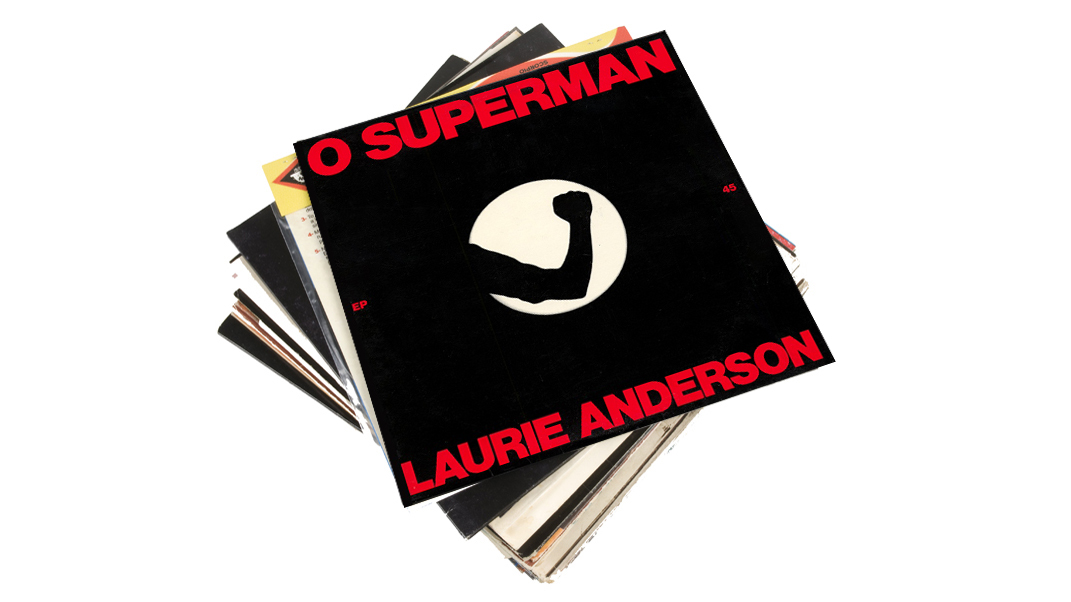
4. Laurie Anderson - O Superman
This for me was a very interesting marking stone, because suddenly an avant-garde artist that had come from the contemporary art scene had a pop hit by applying electronica through a comic figure.
It was kind of serious, but you could also play it to a kid and he would be impressed as well. I thought it was a brilliant example of an elitist artist doing something very popular, yet very successfully executed.
I think the single was Laurie Anderson’s first step into the major recording field, before she was doing performances with her violin in the context of contemporary art. I knew here from that side because that was also my main study concept at the time.
It's this meandering between different scenes that seems to capture my attention. I like artists that experiment; it kills certain clichés and gets rid of preconceptions so you can build a new context around it.
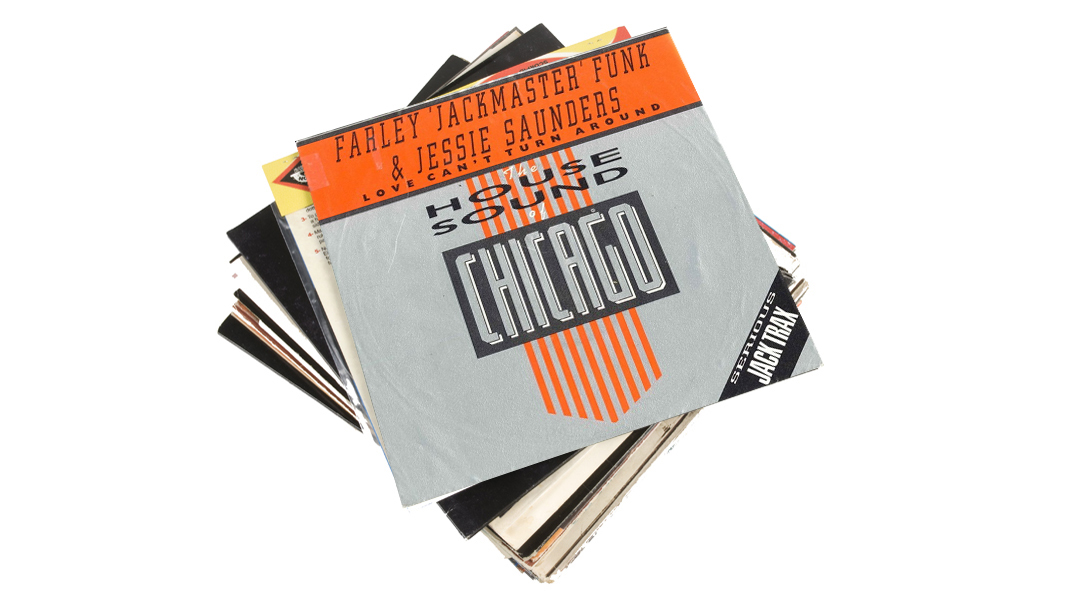
5. Farley "Jackmaster" Funk - Love Can't Turn Around
This is the first House record I heard, and the first time that a 12-inch was released as a main piece of work and the video edit, 7-inch and radio promo was done at a much later stage.
The arrangement followed different rules and criteria, because it was aimed at the dance floor for a DJ to work with, and by DJ I mean the man that stands in a club and works the crowd, not the one that sits in the radio studio. That for me was very radical, because when I first heard it I thought something was broken with my player - it just had a different sound design.
The priorities lay in different areas, the middle was basically empty and it had a lot of top and bottom. It opened a totally new area to me when it hit the main commercial market.
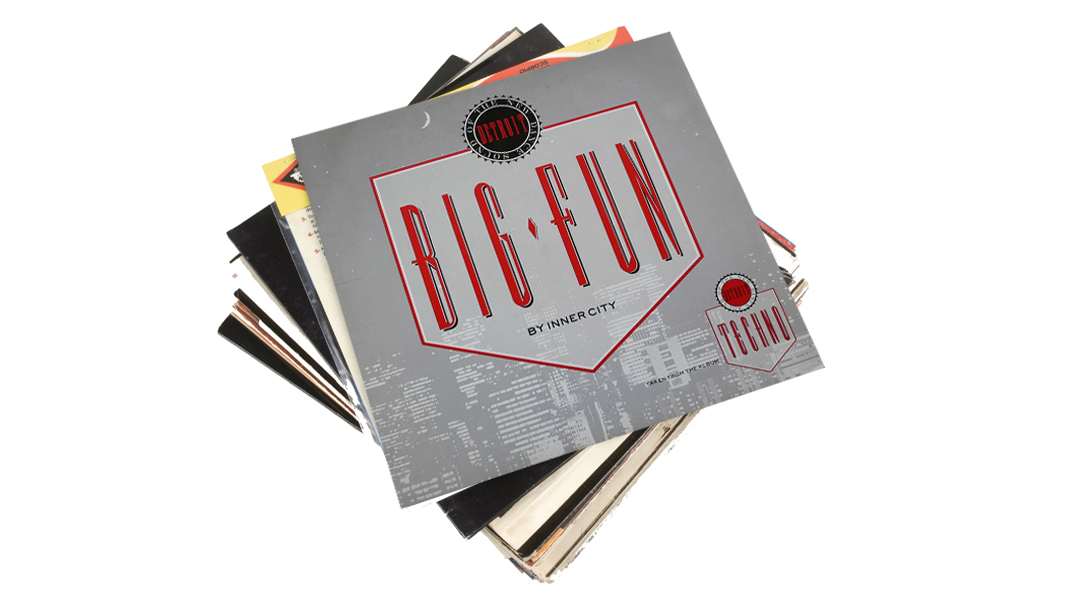
6. Inner City - Big Fun
This was just the perfect pop hit in my book - simple, elegant and just beautiful. What I also like is that it has a certain gospel aspect to it, an outcry of excitement and love which had a great impact on me in the sense that it felt so true and earthy.
That was the first techno record I really fell in love with; it came to my attention due to a compilation by 10 Records called Detroit Techno Volume One. Big Fun led the direction in what I still look out for in a techno record - an uplifting groove, as opposed to techno taking you to some dark place.
In those days, the book was still being written, and this was a record full of light. Obviously, I could have mentioned so many other techno records as well, Strings of Life by Derrick May would be a very strong contender too, but I do like this crossover from club to pop.
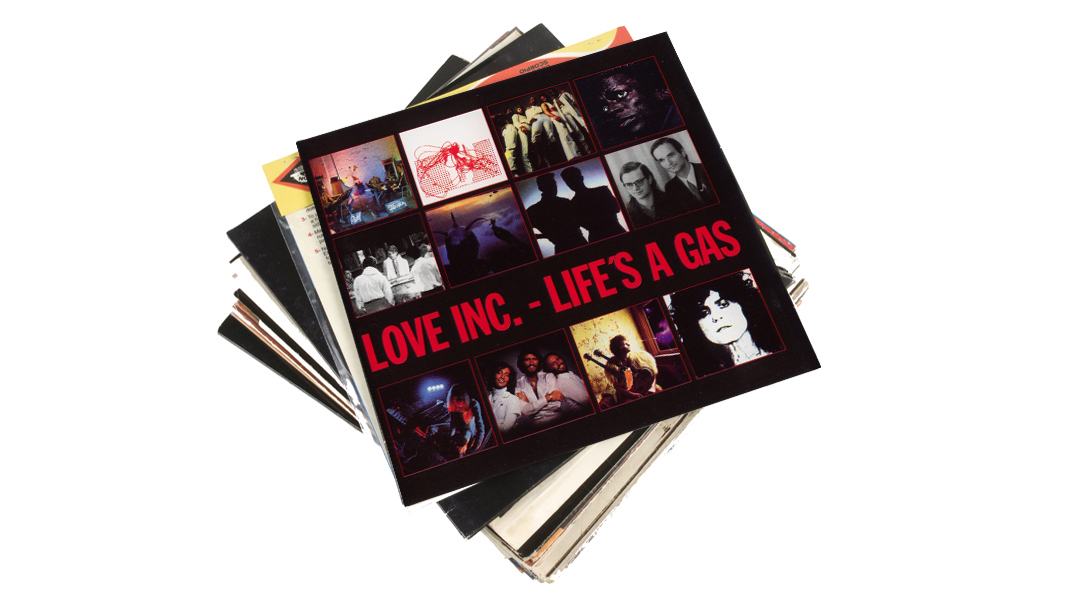
7. Love Inc. - Life's A Gas
This was the birth of serious German techno. It had a beauty and elegance, and on that record Wolfgang Voigt worked with some of his favourite records from the past, like T. Rex and Roxy Music.
He definitely made me change my mind about T. Rex - that's the power and joy of sampling. He obliged this shuffle rhythm onto many of his records, which opened doors for me and became very influential.
In fact, I felt he was opening new doors of freedom, where you could go wherever you wanted and didn't have to be embarrassed by things, like certain clothes. In fact, the more out there you were the better.
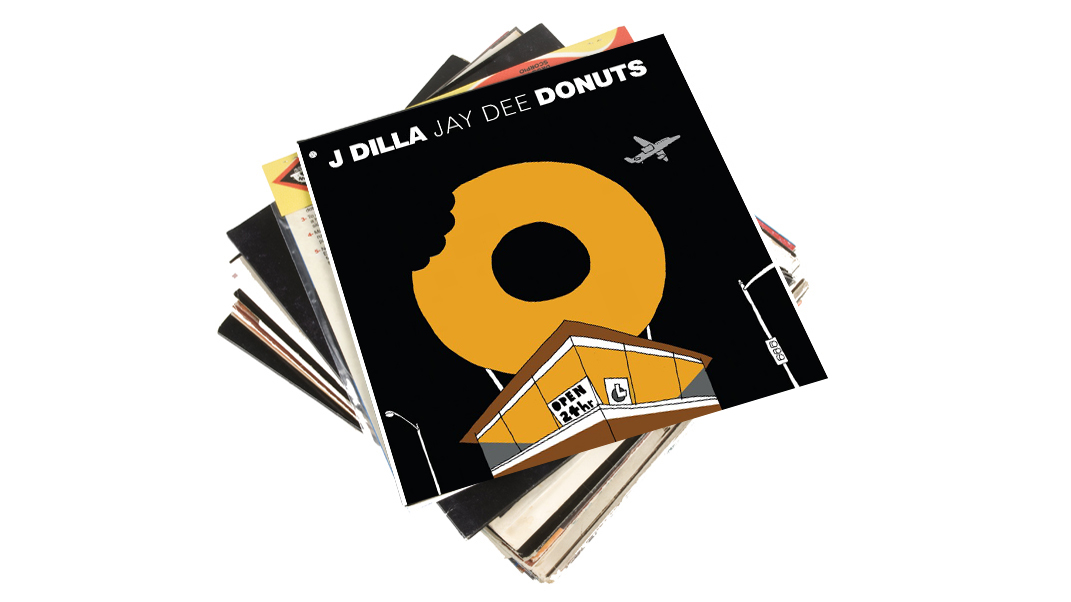
8. J. Dilla - Donuts
That was a very strong eye opener for me, because I really got into this idea that hip hop instrumentals were far more interesting than the actual MC tunes. I could suddenly listen far closer to the actual structure of how they were putting beats together and enjoy them on that level.
As far as I'm concerned, J. Dilla was the first who started really playing around with this 16th grid, which is very much used in dance music. He started to shake it up and go off-grid; having beats that were not on the actual measure but shifted around, and he got different dynamics through that.
Even though it was still sampled and not played live, it had more or a live feeling to it. I don't think he did that consciously; some artists develop their trademark through the result of a little mistake or flaw.
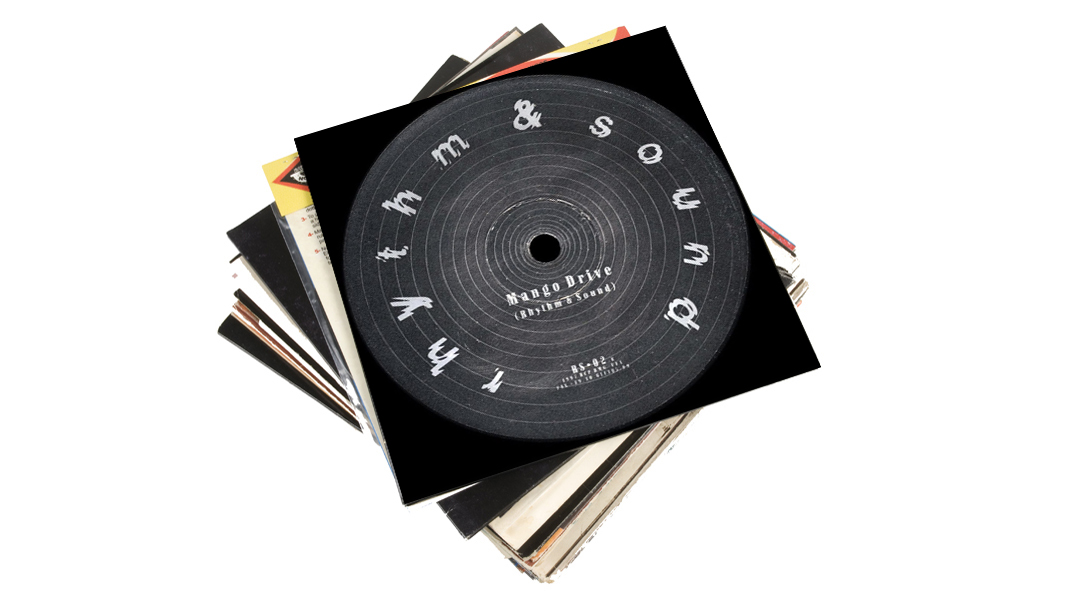
9. Rhythm & Sound - Mango Drive
Basically, I like all their output. They're a very personal influence, because I spent so much of my club life with those two guys in Berlin.
They are strongly inventive because they take existing rules, like reggae music, and create a sensational new form out of them in the way they change the sounds and the whole picture.
Before Rhythm & Sound, they made records under the name Basic Channel - the project and label. It was a very sort of low-tempo, dub vibe - a 21st century version of what I would call dub.
There are not many photos of them around, but I would strongly recommend people track down their Rhythm & Sound moniker because it's absolutely sensational.
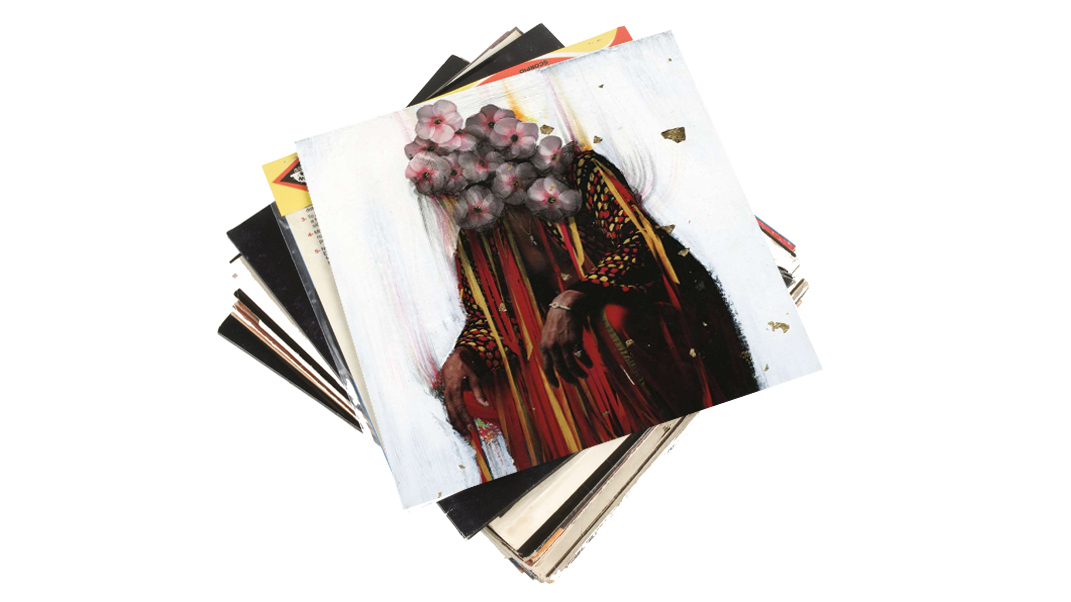
10. Teebs - Just The Yellow Bits
What I absolutely adore about Teebs is his harmonic approach. There is no holding back for fear of being kitsch. He creates music that you think is not quite allowed, but makes it so convincing and beautiful that you have to surrender.
When I go out to buy records, I like to be surprised and be taken to a place I haven't been before, and Teebs adds such lovely elements of harmony and melody without putting his credibility in question.
He did a mix for our album Moonbuilding, which comes out in a few months. We are such fans of his that we had to ask.
New album from The Orb ‘Moonbuilding 2703 AD’ is out now on Kompakt.
Don't miss - In pictures: The Orb's Thomas Fehlmann's Berlin studio

